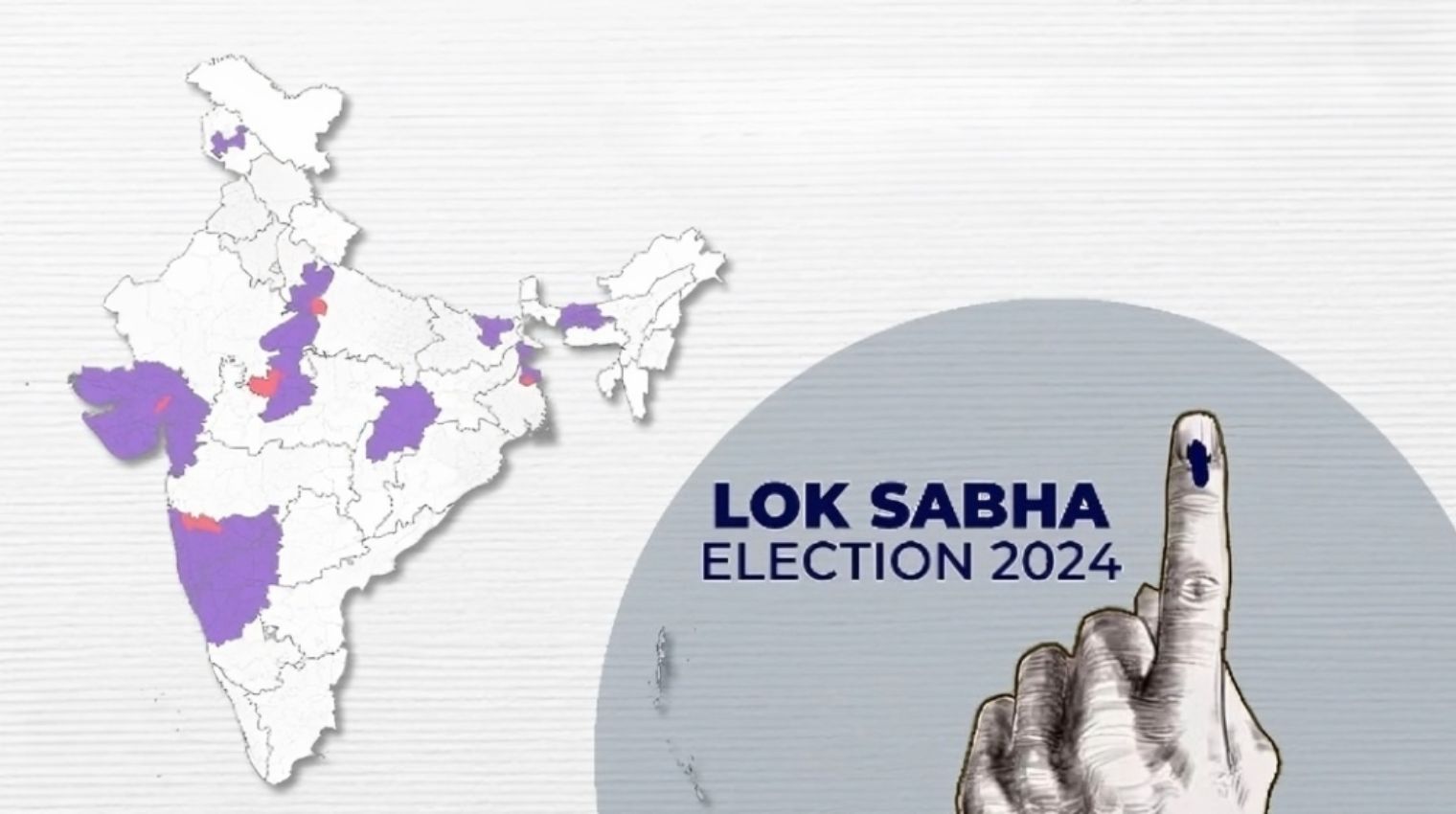Prime Minister Narendra Modi and Union Home Minister Amit Shah participated in the voting process in Ahmedabad during the third phase of Lok Sabha polls. While the voting process in 10 states remained peaceful, there were clashes reported in West Bengal’s Jangipur constituency.
PM Modi emphasized the importance of voting while speaking to the media after casting his vote in Gujarat’s Ahmedabad. He highlighted the significance of ‘Daan’ in the country and urged citizens to vote in large numbers. The Prime Minister mentioned that there are still four more rounds of voting to go.
Accompanying PM Modi was Union Home Minister Amit Shah, who is contesting from the Gandhinagar constituency as the BJP candidate. Shah is aiming for a second consecutive term as an MP from Gandhinagar.
In Maharashtra, Deputy Chief Minister Ajit Pawar, his wife Sunetra Pawar (NCP candidate from Baramati Lok Sabha seat), and NCP (SP) chief Sharad Pawar also exercised their voting rights.
A total of over 17 crore voters will participate in the voting process across 93 constituencies, including 72 general seats, 10 reserved for Scheduled Castes, and 11 for Scheduled Tribes.
Below are the key facts to be aware of regarding Phase 3 of the Lok Sabha elections:
- Prime Minister Modi cast his vote at the polling booth located in Nishan Public School in the Ranip area of Ahmedabad city right after the commencement of polling at 7 AM. He warmly greeted the considerable crowd that had assembled outside the polling station and even had a pleasant interaction with a child among them. In the midst of the prevailing heatwave, he offered valuable advice to the people, urging them to increase their water intake for the sake of their well-being and to boost their energy levels.
- Violence erupted in Jangipur, West Bengal, after a confrontation between BJP candidate Dhananjay Ghosh and a TMC worker at a polling station. The TMC alleged that the BJP candidate was attempting to sway voters.
- During Phase 3, the electoral process will be carried out for a total of 93 seats across various states in India. These states include Assam (4 seats), Bihar (5 seats), Chhattisgarh (7 seats), Goa (2 seats), Gujarat (26 seats), Karnataka (14 seats), Madhya Pradesh (8 seats), Maharashtra (11 seats), Uttar Pradesh (10 seats), West Bengal (4 seats), and Dadra and Nagar Haveli and Daman and Diu (2 seats).
- In the 2019 Lok Sabha elections, Phase 3 witnessed the Bharatiya Janata Party (BJP) emerging victorious in 72 out of 94 seats. The Congress and Shiv Sena secured 4 seats each, while the Janata Dal (United) and Nationalist Congress Party obtained 3 seats each. The Samajwadi Party and Trinamool Congress managed to secure 2 seats each, and the Lok Janshakti Party secured 1 seat. The remaining two seats were won by Independent candidates.
- Key contenders in the third phase of the election are Amit Shah of the BJP running from Gandhinagar, Jyotiraditya Scindia from Guna, Shivraj Singh Chouhan from Vidisha, Purushottam Rupala from Rajkot, Jagadish Shettar from Belgaum, Basavaraj Bommai from Haveri, and BY Raghavendra from Shivamogga.
- In Baramati, Maharashtra, a significant electoral battle is expected as the Nationalist Congress Party’s (Sharadchandra Pawar) incumbent MP, Supriya Sule, will be competing against Sunetra Pawar of the NCP faction led by her distant relative Ajit Pawar.
- Ajit Pawar, the mastermind behind the division within the NCP and currently in possession of the party’s name and symbol, has nominated his wife Sunetra as a candidate from Baramati – a stronghold of the Pawar family that was previously represented by his uncle Sharad Pawar.
- According to the initial timetable, elections were scheduled to take place in 94 constituencies during the third phase. However, the election in the Surat Lok Sabha constituency in Gujarat was called off as BJP candidate Mukesh Dalal emerged victorious uncontested, with all his opponents either withdrawing their candidatures or having them cancelled.
- In addition to Surat, the election for the Anantnag-Rajouri seat in Jammu and Kashmir has been postponed to May 25, which falls under Phase 6 of the polling process. This decision was made after the Election Commission was requested to delay the polls due to logistical, communication, and natural barriers affecting the campaigning process.
- Furthermore, voting will also be conducted for the Betul Lok Sabha constituency in Madhya Pradesh, which was initially set for Phase 2 on April 26. The polling was rescheduled following the unfortunate demise of Bahujan Samaj Party candidate Ashok Bhalavi.

